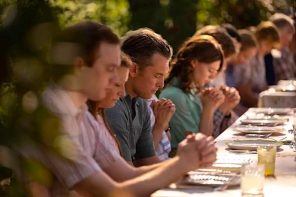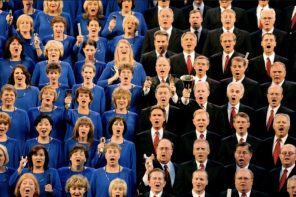“Are Republicans ready now for a Mormon president?”
That’s the question the New York Times posted in its “Room for Debate” forum late yesterday, featuring perspectives by ten experts and scholars in the fields of religion and politics.
Most tell us what we already know: a recent Pew Center survey showed that a significant segment of the American population—about 25%—say they would not vote for a Mormon president.
Look more deeply at the data, and it reveals that public thinking about Mormonism is not monolithic: it’s actually quite disorganized. Evangelical Christians oppose the idea of a Mormon president at the rate of 31%, while 41% of liberal Democrats say the same. And what do these groups have in common?
One takeaway from the Pew Center survey is that if we’re interested in understanding public feelings about Mormonism, we need better data. The Pew Center survey did not ask “why” people hypothetically oppose a Mormon presidential candidate. If it did, I’m betting that liberals and conservatives would have very different reasons, and a good chunk of voters would have no reason at all.
Detailed data is what LDS Church obtains when it commissions its own public opinion surveys, using far more nuanced instruments than those employed by the Pew. In recent years, the Church’s own research has shown that Americans generally perceive Mormons to be pro-family but also insular, anti-gay, and secretive—perceptions which, interestingly, have some basis in social fact.
The second takeaway from the Pew survey and all the discussion that has followed is this: sooner or later, just about every American minority faces a referendum moment. And if you give Americans a chance to pull a virtual lever on any perceived social difference—be it race, sexuality, or religion—they’ll take it. In the anonymous and consequence-free space of an opinion poll, many will delight in voicing their reticence or squeamishness or dislike or ignorance of groups they believe to be unlike themselves.
But faced with actual choices in an actual election, most folks will sober up.
Think of it as the opposite of the much-discussed Bradley effect: the idea that in the privacy of the voting booth, people would resort to their basest prejudices. That didn’t really happen in 2008.
In 2012, the biggest issue won’t be religion: it will be turnout.
The candidate who will win is the candidate who can convince this country’s desperately and inexcusably large number of structurally underdemployed and unemployed (including recent college graduates) to get to the voting booths. To do so, he (or she) is going to have to convince them that he or she has answers to the complex and protracted structural economic changes the nation faces now.
And that’s a feat that may indeed take an act of God to accomplish.




